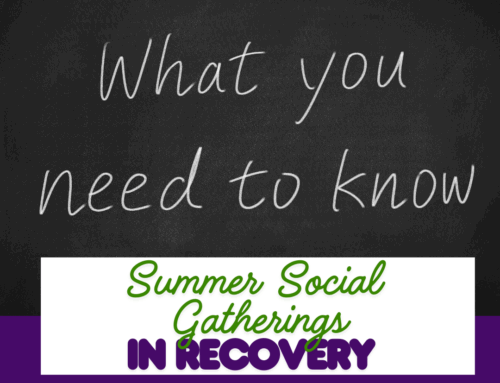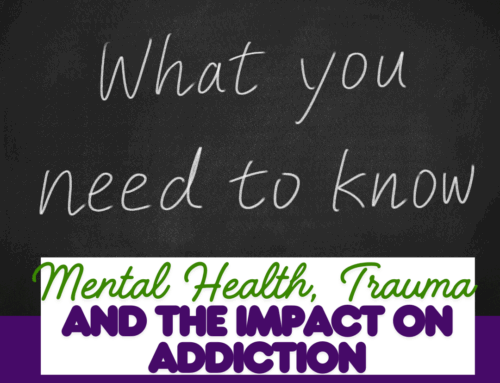 There is a common belief that when overcoming substance use disorder that consuming sugar and junk food is acceptable because sugar and junk food cravings are common in early recovery, and poor eating habits are still an improvement over drugs and/or alcohol.
There is a common belief that when overcoming substance use disorder that consuming sugar and junk food is acceptable because sugar and junk food cravings are common in early recovery, and poor eating habits are still an improvement over drugs and/or alcohol.
Evidence suggests, however, that poor nutritional habits actually hinder progress rather than help on the path to recovery.
Malnutrition and Active Substance Use Disorder
There are several reasons that substance use disorder can lead to unhealthy nutritional habits. Alcohol impedes nutrient breakdown and assimilation, resulting in critical nutritional deficiencies. Alcohol also contains a lot of sugar, and the body becomes accustomed to higher sugar levels so cravings become very pronounced when someone stops drinking.
Many drugs suppress or increase appetite, which contributes to unhealthy eating habits. Amphetamine users may go days without eating. Marijuana smokers can “have the munchies” and binge eat. Opioids, including heroin, morphine, and prescription painkillers, cause gastrointestinal difficulties, including constipation.
Regular consumption of alcohol or other drugs also deprives the body of essential nutrients. There is increasing evidence that demonstrates how healthy nutritional habits are an important part of recovery from substance use disorder.
Healthy Nutrition is Essential in Recovery
Proper nutrition helps recovery from substance use disorder in several ways. Nutrients give the body energy, help build and repair organ tissue, and strengthen the immune system. Many people in early recovery have damaged vital organs due to alcohol and/or drug use, and, proper nutrition provides the nutritional building blocks they need to begin healing this damage.
Nutrition also plays an important role in mood. Research suggests that changes in diet can alter brain structure both chemically and physiologically, and influence behavior. Furthermore, the consumption of certain foods has been tied to increased production of key neurotransmitters like serotonin, which enhance mood.
Proper nutrition not only repairs the body, but it also repairs the mind. Feeling better mentally and physically also reduces the risk of relapse.
 Tips for Establishing Healthy Habits in Recovery
Tips for Establishing Healthy Habits in Recovery
Establishing healthy habits is more than eating well. To maximize the health of the body AND the brain, a lifestyle change is usually required. Here are some tips for creating and maintaining healthy habits in recovery:
Avoid Sugar and Increase Protein, Fruit, Vegetables, and Whole Grains
Especially in early recovery, it’s common for people to face another habit detrimental to their health: consuming too much sugar. The body converts alcohol to sugar, which causes a spike in blood sugar levels. When someone stops consuming alcohol their blood sugar levels drop, and they develop sugar cravings.
Maintaining healthy sugar levels is essential in early recovery because sugar fluctuations can increase anxiety and depression and make people more susceptible to relapse. Sugar increases the brain’s levels of dopamine – a neurotransmitter that helps control the brain’s reward and pleasure centers – and creates an effect in the brain that mimics the dopamine increase found from using drugs and/or alcohol. In effect, sugar creates an artificial dopamine increase that causes the brain to crave more. Cravings of any kind are precarious for anyone in early recovery, thus reducing sugar intake is important to building a sustainable recovery.
Healthy foods include lots of fresh vegetables, fish and whole grains. Proteins are made of amino acids, which increase hormone production and help regulate mood. Lack of protein lowers hormone levels and can generate feelings of sadness, anger, and anxiety. These emotions can already be prevalent in early recovery, so it is essential to consume healthy proteins to help regulate mood.
Proteins also boost the body’s immune system, which fights diseases and infections. Drugs and/or alcohol weaken the body’s immune system, and low protein consumption can make a fragile immune system weaker.
 Vitamins and Minerals
Vitamins and Minerals
People in early recovery are often malnourished due to poor eating habits. Vitamins that are usually depleted in early recovery include Vitamin B, which help the body produce energy from food, Vitamin D, which regulates calcium absorption, and minerals like thiamine, which is important for healthy brain function.
Eating a healthy, balanced diet with lots of fresh vegetables – including green leafy ones, avocados, nuts, fresh fish, poultry and lean meat – can help people in recovery get the vitamins and minerals they need. Some people may also need vitamin and mineral supplements. Before taking any supplements, it is important to consult a physician or nutritionist to determine the best course of action.
Regulate Caffeine Intake
Studies show that people in early recovery should limit caffeine to one cup of coffee per day – ideally in the morning. Caffeine can spike sugar levels, and there can be a blood sugar crash when the effect of caffeine wears out, which often causes people to consume even more caffeine, which perpetuates this unhealthy cycle. Blood sugar crashes cause unpleasant fluctuations in mood as well. The combination of erratic moods and the sugar cravings that accompany caffeine intake put people in early recovery at risk for relapse.
Replace excessive caffeine with high energy foods like apples, edamame, pumpkin seeds, trail mix. nuts, and dried fruits to get through those energy slumps!
Move a Muscle, Change a Mood
Just 10 minutes of exercise is enough to get your blood pumping and increase oxygen flow to your brain and muscles. Jumping jacks, squats, lunges, and stretches also increase energy, trigger dopamine, and improve fitness and mood. Yoga has both mental and physical benefits and can be done in the comfort of your own home. You don’t need an expensive gym membership to find ways to keep active during the day – simply walk up and down the stairs a few times, or take for a brisk walk around the neighborhood.
Set realistic fitness goals and start gradually, to avoid discouragement. It isn’t necessary to go for a long run or work out for an hour to improve muscle mass, gain core strength, and regulate mood.
 Stay Hydrated
Stay Hydrated
If you’re feeling lethargic, you might just need a tall glass of water. The body depends on water for a variety of functions, and most people don’t consume enough. Add a slice of lemon to keep things flavorful and give your body a boost of Vitamin C. Keep a water bottle by your side to fight dehydration and stay energized.
Proper Sleep Hygiene
It is not uncommon for people in early recovery to experience sleep disruption. Anxiety and racing thoughts can interfere with sleep cycles and make it difficult to fall (or stay) asleep at night. Alternatively, some people feel like they just want to sleep all the time. Active use of drugs and/or alcohol can create irregular hours, including staying up late at night or sleeping in, which also leads to irregular sleeping patterns.
Drugs and alcohol can also alter the brain in ways that impact sleep quality. Even when substances are out of the picture, these effects can linger for a time, making sleep a challenge. Recent studies reveal a strong link between sleep quality and emotions that impact recovery.
In early recovery, it is more important than ever to get enough sleep each night. Here are some ways to promote healthy sleep habits while your body and mind continue to heal. These include:
- Creating a regular sleep schedule (even on weekends) and sticking to it.
- Establishing a relaxing bedtime ritual (reading, meditation, warm bath).
- Avoiding large meals, caffeine, and nicotine just before bedtime.
- Eliminating light (including electronics) and outside noises as much as possible.
- Establishing a reasonable exercise program, but avoiding exercise just before bedtime.
How Herren Wellness Can Help
We understand that early recovery – from anything – is a difficult time full of a range of emotions. We work with guests to create a whole-health action management plan, allowing them to discover and explore many opportunities in recovery. We help foster healthy habits and routines, including nutrition, fitness, sleep hygiene, creative exercises, mindfulness practices, and group activities that allow guests to reconnect with the things they love or discover new interests.
We also work with guests to create a meaningful and sustainable aftercare plan that includes healthy habits and routines that are meaningful to them. When you come to Herren Wellness, you become part of a vibrant and thriving community that doesn’t end when your stay ends. You become part of the Herren Wellness family.





